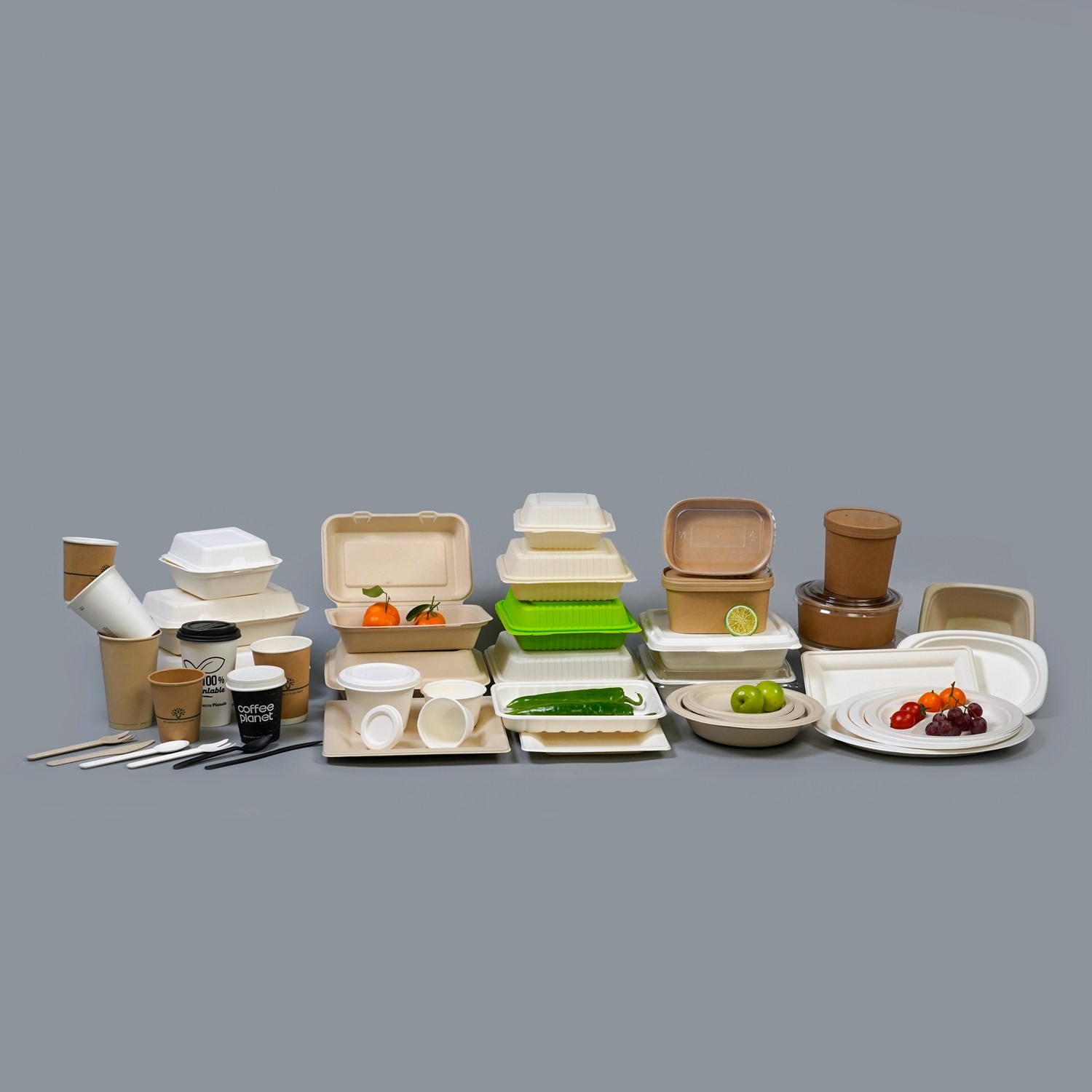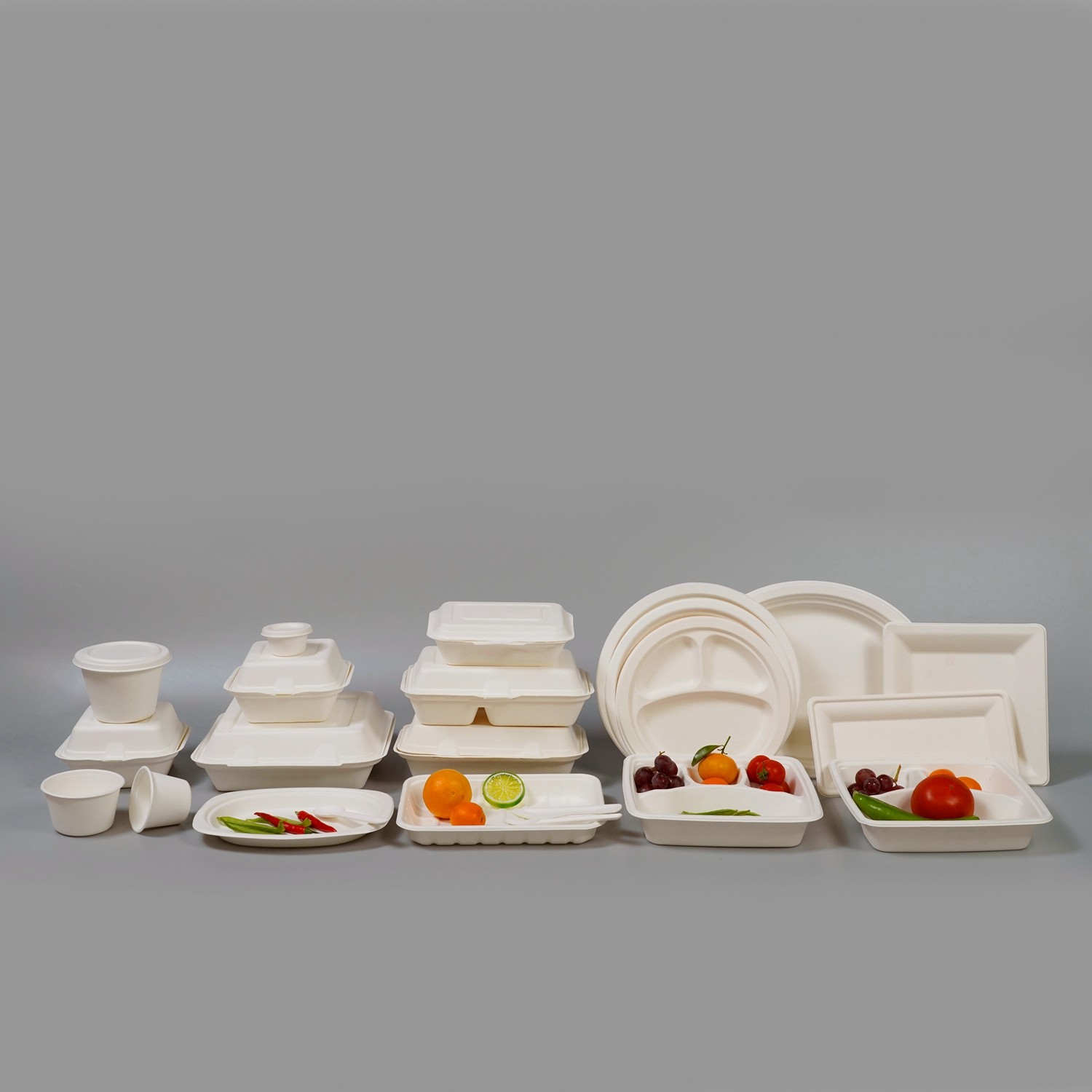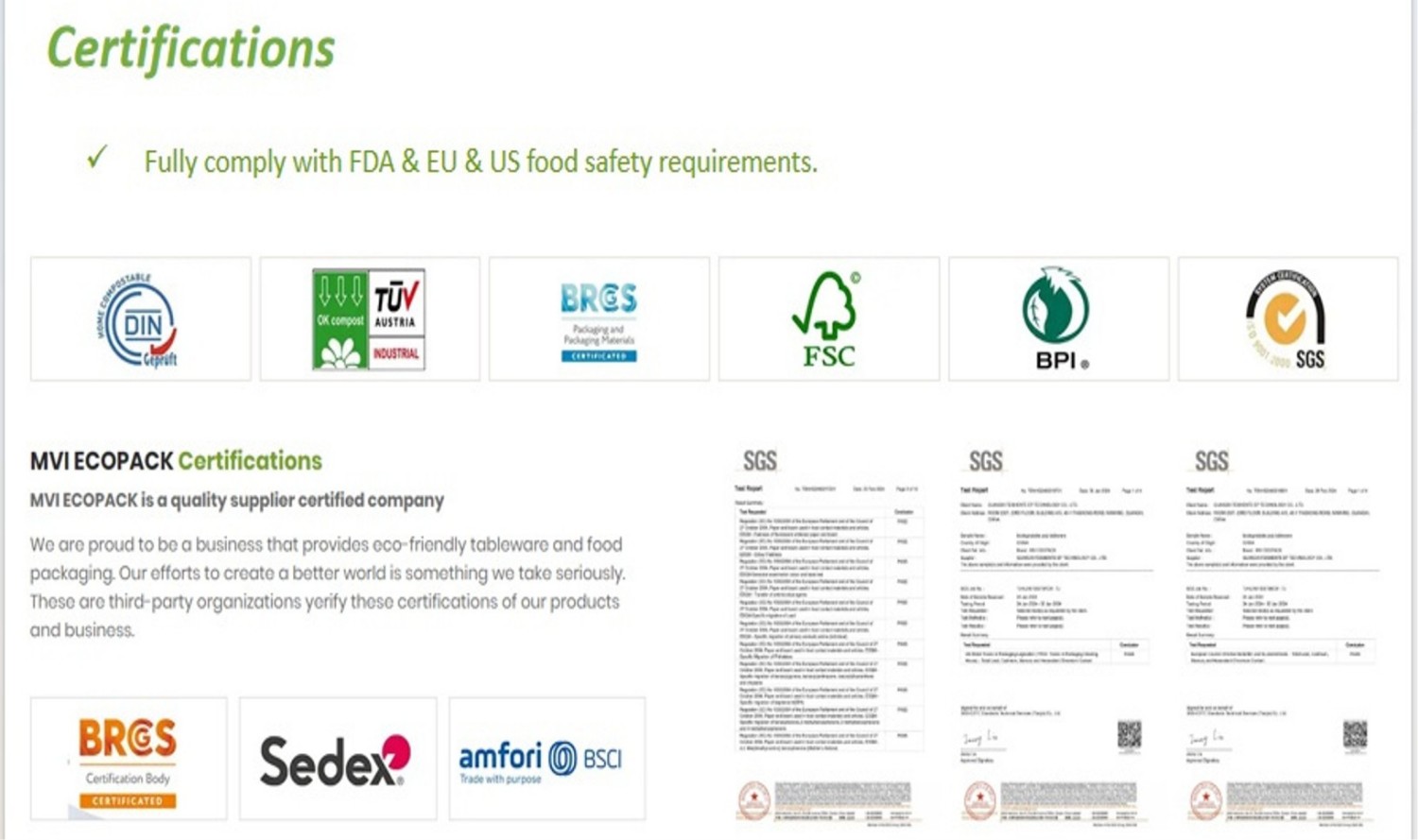Introduction
As global environmental awareness continues to grow, the disposable tableware industry is undergoing profound transformation. As a foreign trade professional for eco products, I’m frequently asked by clients: “What exactly constitutes truly eco-friendly disposable tableware?” The market is flooded with products labeled as “biodegradable” or “eco-friendly,” but the truth is often obscured by marketing rhetoric. This article reveals the standards and key selection criteria for genuinely environmentally friendly disposable tableware.
1. The Environmental Cost of Traditional Disposable Tableware
- Plastic tableware: Takes 200-400 years to degrade, with about 8 million tons of plastic waste entering oceans annually
- Foam plastic tableware: Difficult to recycle, produces toxic gases when incinerated, and is banned in many countries
- Regular paper tableware: Appears eco-friendly but often contains plastic coatings, making it non-biodegradable
2. Five Key Standards for Truly Eco-Friendly Disposable Tableware
1. Sustainable raw materials
– Plant-based materials (sugarcane, bamboo fiber, corn starch, etc.)
– Rapidly renewable resources (plants with growth cycles shorter than one year)
– Doesn’t compete with food production land
2. Low-carbon production process
– Low-energy manufacturing
– No harmful chemical additives
– Minimal water consumption
3. Meets performance standards
– Heat resistance (withstands temperatures above 100°C/212°F)
– Leak-proof and oil-resistant
– Sufficient strength (maintains form for 2+ hours)
4. Environmentally friendly disposal
– Completely degrades within 180 days under industrial composting (meets EN13432 standard)
– Decomposes naturally within 1-2 years
– Doesn’t emit toxic gases when incinerated
5. Low carbon footprint throughout lifecycle
– At least 70% lower carbon emissions than plastic tableware from raw material extraction to disposal
3. Performance Comparison of Mainstream Eco-Friendly Tableware Materials
PLA (Polylactic Acid):
- Degradation: 6-12 months (industrial composting required)
- Heat resistance: ≤50°C (122°F), prone to deformation
- Higher cost, suitable when transparency is required
- Relatively eco-friendly but depends on specialized composting facilities
Sugarcane:
- Degrades naturally in 3-6 months (fastest decomposition)
- Excellent heat resistance (≤120°C/248°F), ideal for hot foods
- Byproduct of sugar industry, doesn’t require additional agricultural resources
- Highest overall environmental rating
Bamboo Fiber:
- Natural decomposition in just 2-4 months (among the fastest)
- Heat resistant up to 100°C (212°F), high strength and durability
- Bamboo grows rapidly, offering excellent sustainability
- May slightly underperform in humid conditions
Corn Starch:
- Degrades in 3-6 months under industrial composting (slower in natural conditions)
- Heat resistant to about 80°C (176°F), suitable for most dining scenarios
- Renewable material but requires balance with food supply needs
- Often blended with other materials to enhance performance
Traditional Plastic:
- Requires 200+ years to degrade, major pollution source
- While low-cost and stable, doesn’t meet environmental trends
- Facing increasing global bans
The comparison shows sugarcane bagasse and bamboo fiber offer the best combination of natural degradability and performance, while corn starch and PLA require specific conditions to realize their environmental value. Businesses should choose based on actual usage scenarios and the environmental requirements of target markets.
4. Four Ways to Identify Fake Eco-Friendly Products
1. Check certifications: Genuine products carry internationally recognized certifications like BPI, OK Compost, or DIN CERTCO
2. Test degradability: Bury product fragments in moist soil – true eco-materials should show visible decomposition within 3 months
3. Review ingredients: Beware of “partially biodegradable” products that may contain 30-50% plastic
4. Verify manufacturer credentials: Request raw material sourcing proof and third-party test reports
Conclusion
Truly eco-friendly disposable tableware isn’t just about material substitution, but a comprehensive lifecycle solution from sourcing to disposal. As responsible suppliers, we must not only provide internationally compliant products but also educate clients about proper environmental understanding. The future belongs to innovative products that meet usage needs while minimizing environmental impact.
Eco-Choice Tip: When purchasing, ask suppliers: 1) Origin of materials, 2) International certifications held, and 3) Optimal disposal methods. The answers will help identify genuinely eco-friendly products.
—
We hope this blog provides value for your procurement decisions. For specific market compliance consultations regarding eco-friendly tableware, please feel free to contact us. Let’s drive the green revolution in disposable tableware together!
Web: www.mviecopack.com
Email:orders@mvi-ecopack.com
Telephone: 0771-3182966
Post time: Apr-18-2025













